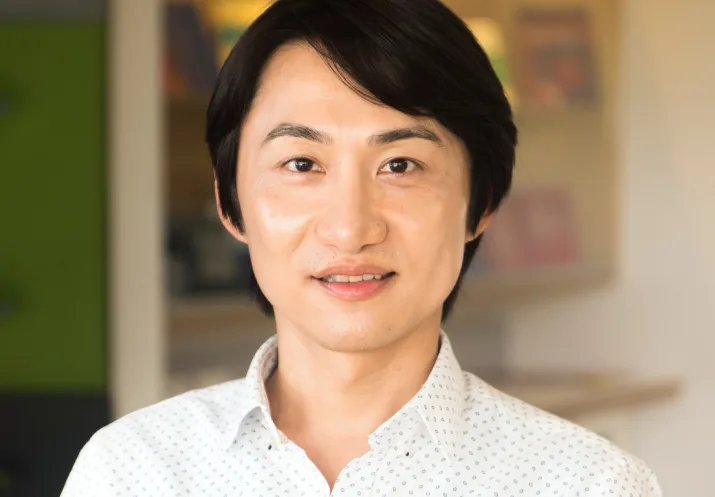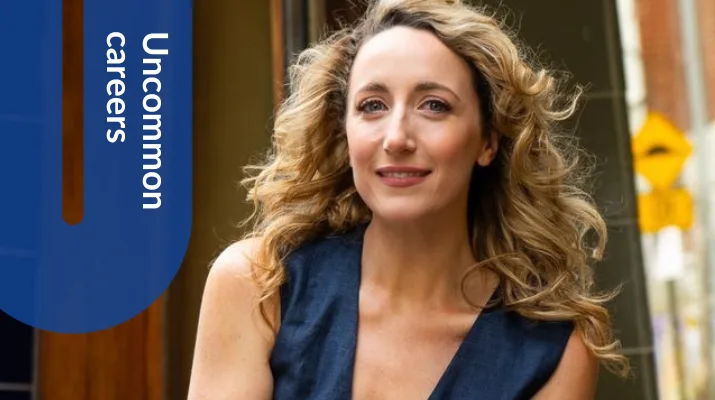How long does it take to learn a language?
By Chloe Cann
It’s an impressive skill, and a surefire way to make your resume stand out; but is it possible to learn a new language without around the clock study? We chat to an expert to find out.
It’s a skill that can help prevent cognitive decline in older age, lead to improved problem-solving skills and attention management, and has even been shown to remodel the brain, increasing the volume of grey and white matter. Plus it’s a pretty cool party trick.
Yet, the number of people learning a second language in Australia has slumped. Between 2010 and 2021 alone, the number of year 12 students enrolled in a language dropped by 23%. And a 2021 report shows that languages had the lowest uptake of all subject areas among year 12 students: out of 234,316 students just 20,246 studied a foreign language. That’s a mere 8.6%.
It’s not just school-age students that are showing less interest in studying languages either, with fewer university students interested in exploring the area.
Is it harder to learn another language as an adult?
Plenty of theories exist about why language learning in Australia has taken such a hit. Many believe it comes down to a common misconception.
“[There’s] this kind of assumption that the younger [you learn a language] the better,” says Julian Chen, course coordinator of Asian languages and teaching academic in Applied Linguistics/TESOL (Teaching English to Speakers of Other Languages) at Open Universities Australia partner university Curtin. “So once you hit puberty you’re doomed.”
There are definite advantages to picking up a new language as a child, and some evidence suggests that children are able to learn a new language more ‘effortlessly’. But it’s a myth that adults are unable to learn a language from scratch, says Julian. And anyone who’s admired YouTuber ‘Xiaoma’s’ viral videos should agree; the American polyglot spoke English exclusively until he was 18 years old.
The subject is a lot more nuanced than some headlines would have you believe, says Julian:
Some people learn faster, some people learn more slowly. That all depends on a lot of factors. I've seen a lot of successful cases where [adult learners] could actually master [a second] language. More mature learners come to language learning with a lot of resources.
Julian does, however, highlight one surprising factor that can hold some adult learners back: confidence. “When you're young, you're not so afraid of making mistakes,” he says. “[Some adult learners are] afraid of making a mistake in front of people, [so they] don't test it [the language] out.”
What’s the best way to learn a language?
Confidence aside, Julian says it’s not the age that you start learning that’s critical, it’s the way you start learning. “Learning strategies, teaching methods, the hours of exposure, that will all come into play,” he notes.
Julian is also a strong advocate for taking a holistic approach to language learning, encouraging learners to exploit every resource available, from listening to the radio to playing video games or watching a movie without captions. “Being immersed and exposed to the target language and culture will actually make a difference,” he explains.
Language learning apps can also prove a useful tool to have in your arsenal, and can definitely help expand your vocabulary. They do, however, have their limitations, and Julian cautions against relying on them.

“If you only use an app, it could get you by, but formal instruction will expedite and facilitate your learning and progress, and [give] you more support,” he says.
“In a formal study setting you have a guide who is specialised in teaching that course. And you [can] also interact with your classmates and practise the language spontaneously. We know language is not just reading, and it's not just grammar. It has four skills: listening, speaking, writing, reading.”
You can choose to learn more than two dozen different languages through Open Universities Australia, including classical and ancient languages (think Latin and Sanskrit), an Indigenous Australian language, and a wide number of Asian and European languages. Most of the short language courses available through Open Universities Australia run for 14 weeks, while an undergraduate degree runs for three years full-time.
Whatever your approach, if you want results you have to put in the time and effort. “There’s no shortcut,” says Julian. “It all depends on how much you practise.”
What are the hardest languages to learn (and what are the easiest?)
While there’s no secret formula to fast-tracking your language skills, is there such a thing as an ‘easy’ or ‘hard’ language to learn? It’s a question Julian regularly receives, and he’s quick to state that there's no “fixed answer”, because every learner is different when it comes to aptitude, time commitment, learning approach, and drive.
Julian does, however, highlight the potential challenge of learning a language that uses a different writing system to your own. For example, native English speakers may find it easier to learn a language such as Spanish or French, which also use the Latin alphabet, rather than Chinese or Japanese, which instead use characters.
This sentiment is reflected by the US Foreign Service Institute’s (FSI) guide, aimed at native English speakers, which has divided language into four tiers of difficulty. Those in the first tier are the easiest, while the fourth tier represents the hardest. Below you’ll find some examples:
Tier One: Danish, Dutch, French, Italian, Norwegian, Portuguese, Spanish and Swedish
Tier Two: German, Indonesian, Malay and Swahili
Tier Three: Farsi, Hebrew, Hindi, Greek, Russian, Turkish and Vietnamese
Tier Four: Arabic, Chinese (Cantonese and Mandarin), Korean and Japanese
FSI research indicates that it takes the average student roughly 600 to 750 class hours to reach ‘General Professional Proficiency’ in Tier One languages, and up to 2,200 class hours to reach the same level for Tier Four languages.
What are the benefits of learning a language?
Whether you’re looking to improve your career prospects by learning Japanese, seeking to interact with distant relatives in German, or you have a burning desire to speak Italian and travel the country from tip to toe, picking up another language is unlikely to be something you’ll regret.
“There are so many benefits [to language learning],” says Julian. “It's a gateway to understanding another person’s culture. [It helps to] build empathy, [it makes you] more culturally aware, more appreciative of diversity. And it makes you smarter. Language is a power.”
Explore the short language courses and degrees that you can study online through us with leading universities.



